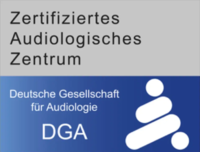About the disease
Nasal polyps is a condition whereby the growth develops on the lining of nasal passages. These growths are benign. They form in the shape of teardrops and tend to hang down the sinuses. There are many causes which can lead to development of nasal polyps.
The most common cause is chronic inflammation of nasal passages. Such chronic inflammation can develop if a person has asthma or allergy to certain allergens which he/she is constantly exposed to. Recurrent nasal infections can lead to development of polyps as well.
Sensitivity to certain drugs, which are taken for a prolonged period of time, can result in growth of polyps in the nasal passages as well. Also, certain diseases of an immune system can lead to development of nasal polyps. This condition is most common among young and middle-aged people.
In some cases a person may not even know that he/she has nasal polyps. If the nasal polyp is small and does not grow, it may never cause any problems and resolve on its own. Larger polyps, however, can lead to respiratory problems. They can even lead to partial loss of smell sense.
If the polyp does not resolve on its own after several weeks even after conservative treatment, patient is recommended to remove it. If polyps create obstruction or any breathing problems, they are recommended to be removed even earlier. In case a person has serious problem breathing or develops swelling under the eyes, he needs to call an ambulance or go to the doctor immediately, as these symptoms are medical emergency.
Symptoms
- Runny nose
- Feeling of stuffiness in the nose
- Decreased sense of smell
- Pain in the upper teeth
- Feeling of pressure in the face, which can indicate chronic problem with sinuses
- Snoring
- Problems with breathing
Diagnosis
- During a general examination, the doctor will examine the nasal passages and will also determine if a patient had any colds or infections lately.
- Imaging tests, an X-ray mostly, are used to examine the sinuses and determine if there are any polyps, their amount, size and exact location.
- Nasal endoscopy is used to examine the nasal passages more closely.
- Blood test may be used to see if there are signs of an infection.
- Respiratory function tests may be used to determine if the patient breathes normally and has no obstruction.
- If nasal polyps were caused by an allergy, the doctor may use an allergy test to determine the allergen which caused the development of nasal polyps.
Treatment
- Conservative treatment uses corticosteroids and special sprays to reduce the size of polyps and reduce inflammation.
- Surgery may be used to remove the polyps.
- Electric coagulation is a minimally invasive procedure, also used to shrink the polyps and remove them. It uses short wave electrolysis for this purpose.
Authors: Dr. Nadezhda Ivanisova, Dr. Sergey Pashchenko




















